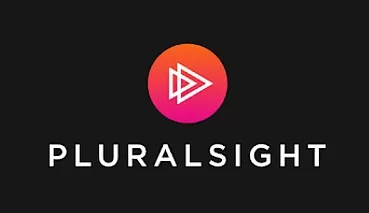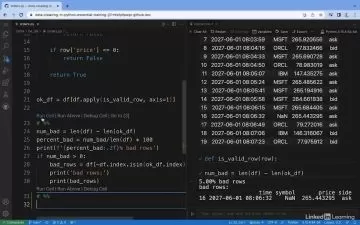Core Python 3: Functions and Functional Programming
Austin Bingham
1:17:53
Description
A key to Python's expressiveness lies in its model of functions and the tools it provides for working with them. In this course, you'll learn more about Python's concept of "callable objects" and some sophisticated ways to use them in your programs.
What You'll Learn?
In Python, as with most programming languages, functions are a fundamental tool for managing program complexity. Understanding how to use functions fluently is a key skill on the road to mastering Python, as is knowing alternative techniques for the cases where functions are insufficient for your needs. In this course,Core Python 3: Functions and Functional Programming, you'll learn about some of the finer details of using functions as well as more general concepts that subsume them. First, you'll look at the various types of callable objects in Python, along with extended argument definition and calling syntax. Then, you'll explore local functions and the concept of closures that allow them to work. Next, you'll discover Python's powerful system of decorators which allow you to enhance or modify existing functions. Finally, you'll understand the functional-style programming tools in Python along with advanced use of comprehensions. By the end of this course, you'll have a deeper understanding of Python's sophisticated approach to calling functions, and you'll see that functions are actually just one aspect of a more general set of concepts in the language.
More details
User Reviews
Rating
Austin Bingham
Instructor's Courses
Pluralsight
View courses Pluralsight- language english
- Training sessions 25
- duration 1:17:53
- level average
- English subtitles has
- Release Date 2023/03/30







![Introduction to Natural Language Processing in Python [2024]](https://traininghub.ir/image/course_pic/36695-x225.webp)


